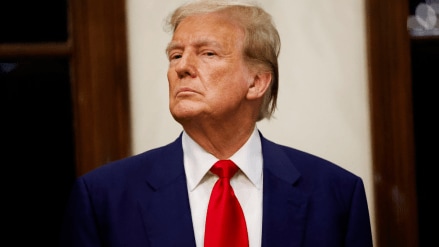US President Donald Trump has declared a move to impose a 100% tariff on all movies “produced in Foreign Lands.” The announcement, made on Sunday through his Truth Social platform, claims that this measure is a response to what Trump describes as a concerted effort by foreign nations to undermine the US film industry.
Trump stated that he has authorized the U.S. Department of Commerce and the US Trade Representative to immediately begin instituting the tariff, although specifics on how it will be implemented have not yet been disclosed. The president framed the global competition in the film industry as a national security threat, asserting that foreign films are “messaging and propaganda.”
“This is a concerted effort by other nations and, therefore, a National Security threat,” Trump wrote. “It is, in addition to everything else, messaging and propaganda!”
This announcement comes amid rising tensions between the US and China over trade practices. In response to Trump’s tariff announcement, China reduced its quota of American films allowed into the country. The China Film Administration issued a statement on April 10, criticizing the US government’s actions and claiming that the tariffs would further diminish domestic audiences’ favorability towards American films.
“The wrong action of the US government to abuse tariffs on China will inevitably further reduce the domestic audience’s favourability towards American films,” the statement read. “We will follow the market rules, respect the audience’s choice, and moderately reduce the number of American films imported.”
China, the second-largest film market globally after the US, has seen domestic films outshine Hollywood imports in recent years. The 100% tariff could deal a significant blow to major Hollywood studios like Walt Disney Company, Paramount Global, and Warner Bros. Discovery Inc., which are still recovering from the effects of the COVID-19 pandemic.
The U.S. film industry has already been feeling the impact of escalating trade tensions, with this new tariff adding to the pressure. As Hollywood studios continue to navigate an increasingly competitive global market, this tariff could alter the landscape of international film distribution and film collaborations, raising questions about future cross-border cultural exchanges.
Critics argue that Trump’s move could isolate the U.S. from global creative markets, while supporters believe it is necessary to protect American jobs and restore competitiveness in the U.S. film industry. With no clear timeline or details about enforcement, the impact of this policy remains to be seen.
